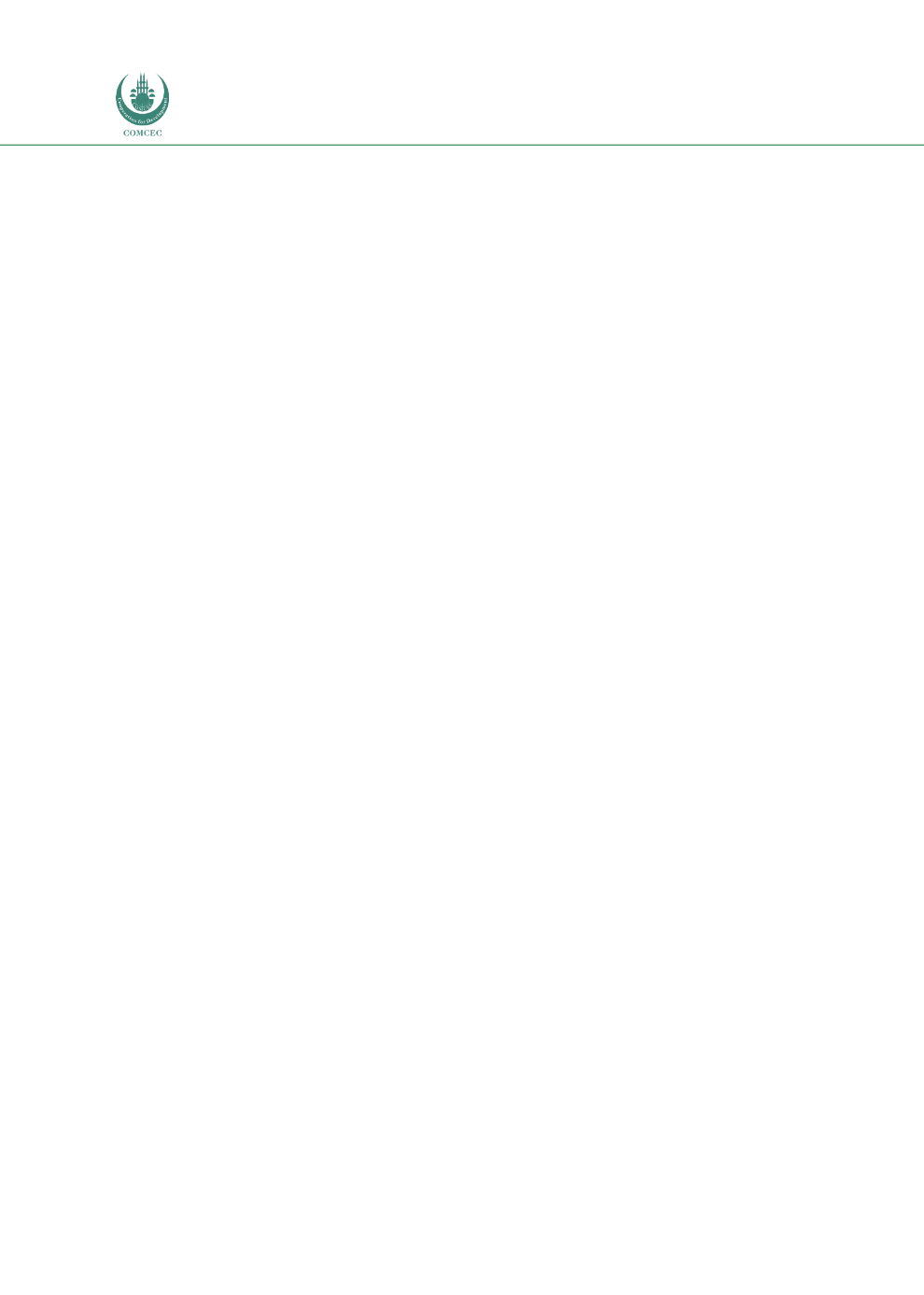

Islamic Fund Management
122
4.4
Morocco
Morocco is a newcomer to the Islamic finance market; its Islamic fund management industry is
officially non-existent. The regulatory framework to accommodate the development of the
industry was initiated in 2014, with the enactment of the participation finance bill (Law No
103-12 issued in 2015). The industry scaled new heights when the Moroccan central bank,
Bank Al-Maghrib (BAM), issued licences to eight Islamic banks (known as participation banks)
in 2017. The banks launched their activities in mid-2017, offering Shariah-compliant funding
products for automotive and real-estate purchases.
Morocco is still in the infancy stage of development for different segments of the Islamic
finance industry. Its regulatory framework and infrastructural set-up are still in the process of
being formulated and implemented. Morocco is currently undergoing several reforms to its
financial sector, in particular working towards its vision of establishing a complete Islamic
finance ecosystem. It is making strides in the development of its Islamic banking industry,
takaful
sector and Islamic capital markets, including equities, sukuk and Islamic funds.
This case study on Morocco attempts to delineate the current state of development of its
Islamic finance market, with a special focus on the fund management industry. We will discuss
the challenges and growth prospects of Islamic capital markets in general and Islamic fund
management in particular. The choice of Morocco as a country case study is based on the
following factors:
Morocco is an emerging market in the MENA region, which recently started promoting
Islamic finance. The country enjoys strong government support in achieving its vision of
developing the various segments of the Islamic finance market.
The equity market in Morocco is still small compared to other OIC-African countries. As
such, it meets the ‘infancy’ criteria of a low level of development for conventional and
Islamic funds.
While most OIC-African countries fall within the ‘infancy’ stage, Morocco’s access to data
is deemed relatively easier.
4.4.1
Overview of Morocco’s Islamic Finance and Islamic Fund Management
Industries
The Islamic Finance Country Index (IFCI) 2017, developed by Edbiz Consulting in 2011, ranked
Morocco last (48
th
position) in terms of the state of development of Islamic banking and
finance. This ranking had been announced at a time when the implementation stage of the
various reforms to boost the industry had yet to commence in Morocco. Its Islamic banking
industry only began in 2017, with eight participation banks.
The development of Morocco’s Islamic banking and finance industry is in line with the
country’s efforts to rebuild its financial markets after the effects of the global financial crisis in
2007−2009, which had affected liquidity and curbed foreign investments. The stance was that
Islamic finance could attract both liquidity and foreign investments, especially given Morocco’s
strategic connection with Europe, Africa and the Gulf region. The development of Islamic
finance markets also aligned with the country’s vision of developing Casablanca Finance City
(CFC)―created under law No. 44-10 and enacted in December 2010, as amended and
















